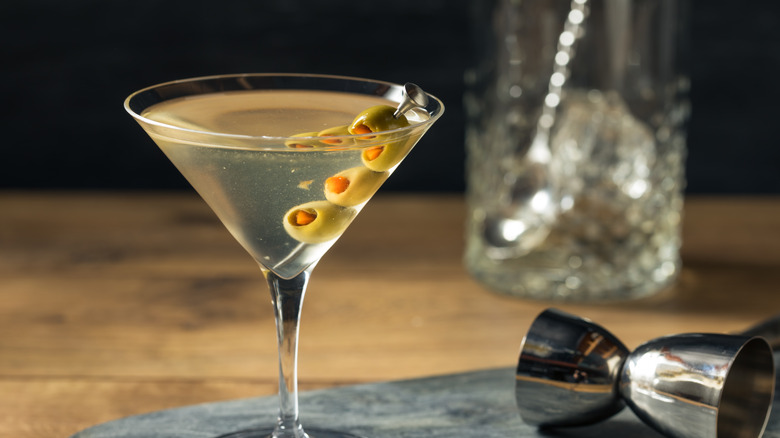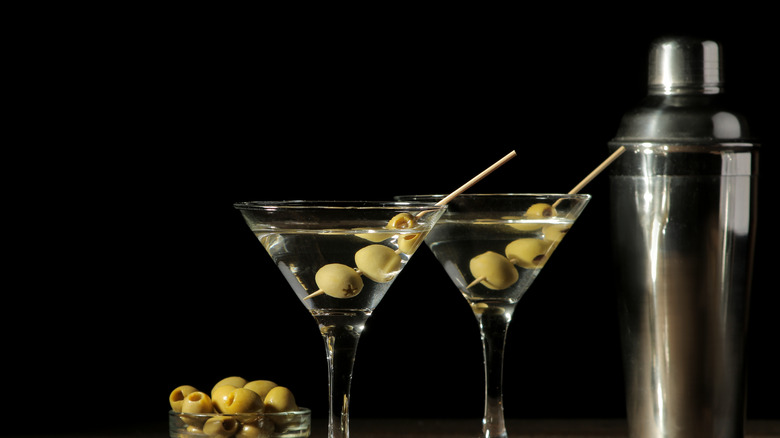What's The Actual Difference Between A Dirty And Filthy Martini?
Dirty, extra dirty, or filthy? No, we are not talking crudely like Seth from "Superbad;" we are speaking eloquently like a refined martini mixologist who understands the importance of these differences. And though both bartenders and Jonah Hill's character can mix a mean drink and keep the party going, not everyone can say the same. For those in the dark about the multifaceted popular martini, here are some essential terms and pointers to help you perfect your martini game.
Martini drinkers are known for being especially particular about how they like their martini to be made. And who could blame them? The ice-cold concoction can fit your taste like a tailored glove and go down like a flow of pure arctic dew.
Even if you are not too familiar with martinis, chances are you have heard them ordered a number of different ways, but do you know what all those martini terms mean?
Dirty vs filthy martini
If you want a surefire way to make your date blush, you can order your martini in three ways: dirty, extra dirty or filthy.
A martini is traditionally made with gin and vermouth, but over the years, vodka has become increasingly popular as a substitute for gin. They are then often garnished with a skewer of savory green olives, cocktail onions, or a lemon twist.
If you like the flavor of green olives, then you just might love your martini made one of three dirty ways. A dirty martini is made by adding a splash of olive brine, usually about one part brine to two parts vermouth.
An extra dirty martini, as you might have guessed, is a martini made with even more olive brine — about equal to the amount of vermouth. And a filthy martini, brace yourself, is sometimes made with an amount of olive brine that completely replaces the vermouth. Other filthy martinis will keep a little vermouth around.
More martini terms to know
Besides dirty and filthy, there are many more terms to help you sound like a martini expert. "Shaken, not stirred" certainly comes to mind (thank you, Mr. Bond), but there is even more to the martini.
A dry martini is made with less dry vermouth (we know it's a bit counter-intuitive, but you will catch on quickly), and an extra dry martini eliminates the vermouth, a fine way to let the taste of gin or vodka shine.
A wet martini is heavier on the dry vermouth, and an extra wet martini is equal parts gin or vodka and vermouth. If you do not like dry vermouth, ordering a sweet martini will swap out the dry for sweet vermouth. And if you do not like olives, a pickled onion in a martini is sometimes called a Gibson martini.
Once you discover the best martini recipe that matches your preference perfectly, it will become your go-to cocktail. And believe us, you will know when you have found your favorite martini — it will feel like butterflies and fit like Cinderella's slippers. Now let's toast!


